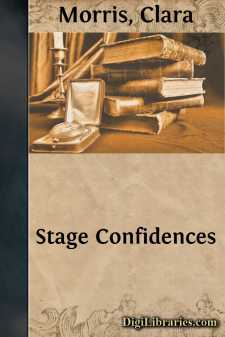Categories
- Antiques & Collectibles 13
- Architecture 36
- Art 48
- Bibles 22
- Biography & Autobiography 813
- Body, Mind & Spirit 142
- Business & Economics 28
- Children's Books 17
- Children's Fiction 14
- Computers 4
- Cooking 94
- Crafts & Hobbies 4
- Drama 346
- Education 46
- Family & Relationships 57
- Fiction 11829
- Games 19
- Gardening 17
- Health & Fitness 34
- History 1377
- House & Home 1
- Humor 147
- Juvenile Fiction 1873
- Juvenile Nonfiction 202
- Language Arts & Disciplines 88
- Law 16
- Literary Collections 686
- Literary Criticism 179
- Mathematics 13
- Medical 41
- Music 40
- Nature 179
- Non-Classifiable 1768
- Performing Arts 7
- Periodicals 1453
- Philosophy 64
- Photography 2
- Poetry 896
- Political Science 203
- Psychology 42
- Reference 154
- Religion 513
- Science 126
- Self-Help 84
- Social Science 81
- Sports & Recreation 34
- Study Aids 3
- Technology & Engineering 59
- Transportation 23
- Travel 463
- True Crime 29
Our website is made possible by displaying online advertisements to our visitors.
Please consider supporting us by disabling your ad blocker.
Confidence
by: Henry James
Description:
Excerpt
CHAPTER I
It was in the early days of April; Bernard Longueville had been spending the winter in Rome. He had travelled northward with the consciousness of several social duties that appealed to him from the further side of the Alps, but he was under the charm of the Italian spring, and he made a pretext for lingering. He had spent five days at Siena, where he had intended to spend but two, and still it was impossible to continue his journey. He was a young man of a contemplative and speculative turn, and this was his first visit to Italy, so that if he dallied by the way he should not be harshly judged. He had a fancy for sketching, and it was on his conscience to take a few pictorial notes. There were two old inns at Siena, both of them very shabby and very dirty. The one at which Longueville had taken up his abode was entered by a dark, pestiferous arch-way, surmounted by a sign which at a distance might have been read by the travellers as the Dantean injunction to renounce all hope. The other was not far off, and the day after his arrival, as he passed it, he saw two ladies going in who evidently belonged to the large fraternity of Anglo-Saxon tourists, and one of whom was young and carried herself very well. Longueville had his share—or more than his share—of gallantry, and this incident awakened a regret. If he had gone to the other inn he might have had charming company: at his own establishment there was no one but an aesthetic German who smoked bad tobacco in the dining-room. He remarked to himself that this was always his luck, and the remark was characteristic of the man; it was charged with the feeling of the moment, but it was not absolutely just; it was the result of an acute impression made by the particular occasion; but it failed in appreciation of a providence which had sprinkled Longueville's career with happy accidents—accidents, especially, in which his characteristic gallantry was not allowed to rust for want of exercise. He lounged, however, contentedly enough through these bright, still days of a Tuscan April, drawing much entertainment from the high picturesqueness of the things about him. Siena, a few years since, was a flawless gift of the Middle Ages to the modern imagination. No other Italian city could have been more interesting to an observer fond of reconstructing obsolete manners. This was a taste of Bernard Longueville's, who had a relish for serious literature, and at one time had made several lively excursions into mediaeval history. His friends thought him very clever, and at the same time had an easy feeling about him which was a tribute to his freedom from pedantry. He was clever indeed, and an excellent companion; but the real measure of his brilliancy was in the success with which he entertained himself. He was much addicted to conversing with his own wit, and he greatly enjoyed his own society. Clever as he often was in talking with his friends, I am not sure that his best things, as the phrase is, were not for his own ears....






















